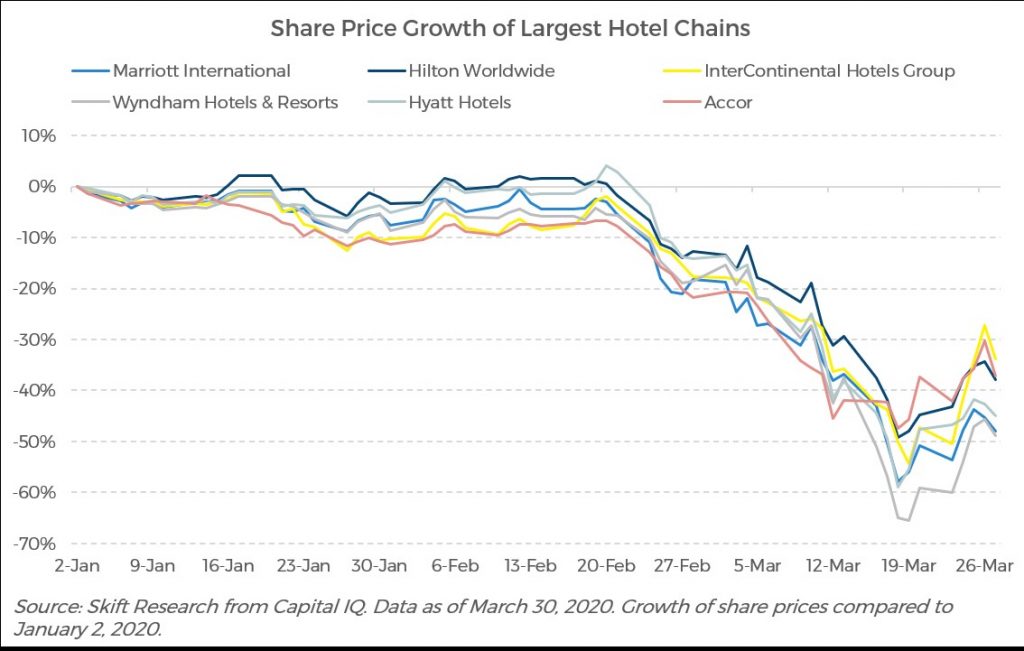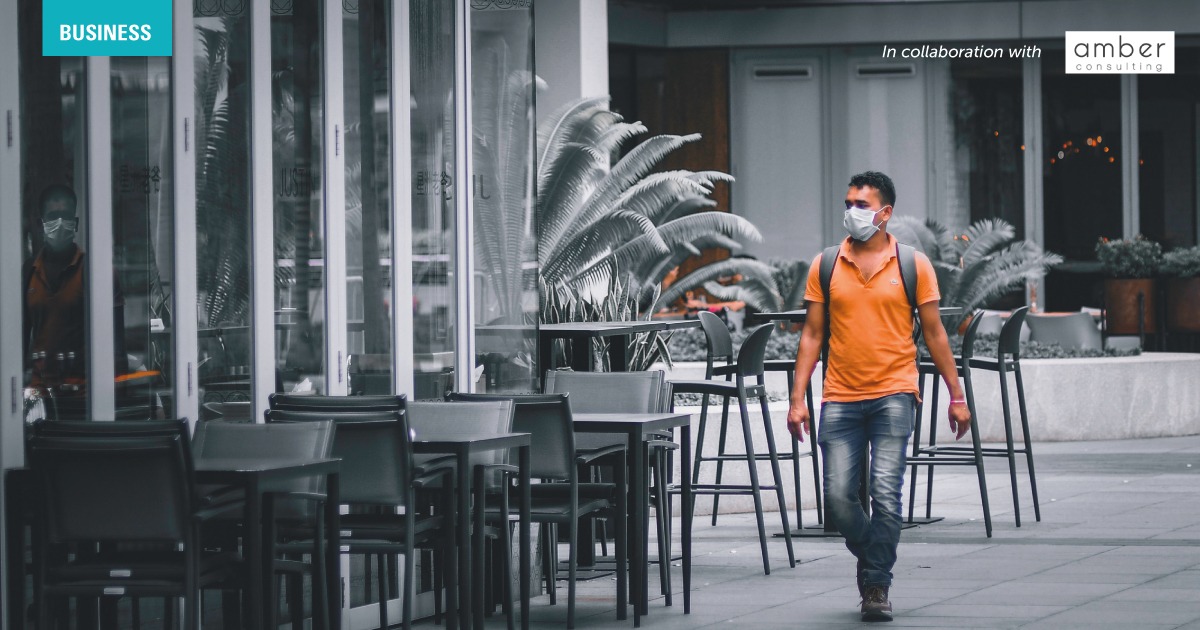There is no question that the tourism industry is facing some of its toughest days as a result of the COVID-19 pandemic. Ralph Nader, CEO of Amber Consulting, breaks down the facts.
Snoozing Tourism
“Tourism is among the hardest hit of all economic sectors,” said the secretary general of the United Nations World Tourism Organization (UNWTO). According to the UNWTO, COVID-19 will result in the tourism sector contracting by 20% to 30% in 2020. This translates into a decline in international tourism receipts (exports) of between USD 300-450 billion, almost one third of the USD 1.5 trillion generated in 2019, which means that between five and seven years’ worth of growth will be lost to COVID-19. When compared to previous viral pandemics, the average recovery time for visitors to a destination was around 19 months.
No One, Nowhere
Never before in history has international travel been restricted in such an extreme manner, where 100% of destinations worldwide have COVID-19 related travel restrictions in place. Analysis of the UNWTO’s research breaks down the type of travel restrictions of 217 destinations worldwide:

Airlines Struck
The border closures and travel restrictions proved a severe blow to the airline industry. Many international carriers and airports have shut down their operations until further notice. It all began with the cancellation of flights to China, where the capacity of flights between China and the rest of the world was cut by 80%. Then, America announced a border closure for EU nationals.

Almost all airlines will need some government assistance to continue flying and according to CAPA, most airlines will be bankrupt unless governments step in. Luckily, many airlines have been rescued by financial injections.
In addition, IATA forecasts a loss of passenger revenues of USD 252 billion compared to 2019, a year-on-year drop of 44%. Europe was the hardest hit, followed by South America.

#TravelTomorrow
“By staying home today, we can travel tomorrow”. The hashtag #TravelTomorrow encapsulates this message of solidarity and hope, through which the UNWTO calls for shared responsibility among travelers and the tourism sector around the world to deal with the COVID-19 pandemic.
Hotels: Sleep at Home
The crisis has impacted everyone, from the small hotelier to global chains. Marriott’s president and CEO, Arne Sorenson, said: “COVID-19 is having a more severe and sudden economic impact on our business than 9/11 and the 2009 financial crisis combined. The worst quarter we had in those earlier crises saw a rough 25% decline in hotel revenues on average across the globe”.

As for the MENA region, hotel occupancy for 2020 is expected to be severely affected, as illustrated by the approximate 30% drop in occupancy seen in March of this year (reported by STR). In its MENA Hotel Market report, which focuses on hotel performance in the MENA region, Colliers International predicted that occupancy for the entire year of 2020 will be between 21-40%.

“38% of hotel investors in MENA expect the hotel occupancy in their respective market to be between 21 –40% in 2020 (full year).” However, the good news is that most hotel investors remain hopeful for a relatively quick recovery period. In fact, 46% of respondents expect the recovery to begin in Q4 of 2020.”
Revenue per available room saw similar declines according to STR. The impact on RevPAR performance in major European cities is shown below.

Lost Jobs
Up to 75 million jobs are at risk in the labor-intensive sector, they said, citing the World Travel and Tourism Council. Due to the dramatic downturn in travel, properties that remain open are operating with minimal staff. On average, full-service hotels have just 14 employees, down from 50 before the crisis. Resort hotels, which often operate seasonally based on the area’s peak tourism months, averaged about 90 employees per location as recently as March 13. They are down to an average of five employees per resort today.
In the MENA region, 88% of hotel owners have reduced staff and/or salaries and 83% have had initiating staff leave, as per Colliers International’s survey.
Restaurants: “We are Closed”
Similar to the rest of the sector, restaurants are also expected to be hard hit by the economic slowdown. Full-service restaurants are at higher risk.

In addition, the independent restaurants are especially vulnerable and most likely to close locations permanently.
National Restaurant Association, March 25:
“As the coronavirus epidemic rages on, 3% of restaurant operators have already permanently closed their restaurants, 44% have temporarily closed their restaurants, and 11% say they anticipate they will permanently close within the next 30 days.”
James Beard Foundation, April 16
“Only 1 in 5 independent restaurant owners in locked down cities are certain or somewhat certain that they would be able to come back after business operations resume[…] Nearly three in five restaurant operators said they could only survive between one week and one month more given the current economic climate and local lockdowns.”
BTIG, April 1
“We expect independent restaurant to cede market share to chains as a result of corona-virus. We believe this dynamic could be most pronounced in the pizza space, accelerating an existing trend, given its fragmented nature where independents account for roughly half of sales.”
However, restaurant stocks have regained some ground, reflecting progress in “flattening the curve” and optimism around stay-at-home orders beginning to lift.

“DON’T PANIC, RECOVERY is SOON”
According to the World Tourism Forum, travel will be very different a few months from now. So, what should we expect?
“Safer close to home”: When it comes to leisure travel, travelers will feel more comfortable to stay near home, which means that international long-haul travel will not be attractive. This is due to the anxiety of being too far from home and to justifiable fears about the ability to return in case of an accident to one’s home country. Americans are going to fly within America, Europeans within Europe, with Asia seeing perhaps the same pattern. In addition, travelers will associate safe trips to “rural” and “nature” destination and high risk to “crowds” and “public spaces.”
“Low Prices Stimulating Traffic”: Everyone, literally everyone, is facing financial challenges due to the pandemic. In addition, the lack of demand and the inability for suppliers to create traffic also lower the prices. Secondly, during economic crises consumers were conditioned to expect low prices which will “double” the need for suppliers to offer significant discounts and offers.
“Flexibility” The genie is already out of the bottle for the global airline industry. Airlines around the world are being flexible and adapting new strategies to cope with the pandemic.
Changes can be made without fees, with cash or travel loan refunds given.
Note that airlines are not alone, with hotels, holiday rentals, and car hire companies waiving prepaid and non-changeable booking cancelation fees. This is a positive
improvement for customers at a time of tremendous uncertainty.
STAY POSITIVE
History offers little guidance about how the recovery will take place when comparing this pandemic to the 2003 outbreak of SARS. For the SARS epidemic, travel began to recover three to four months after the crisis started. This is equal to June and July for 2020. In its report released on April 26, Data-Driven Innovation Lab predicted that the COVID-19 will end completely on 9 December 2020 in the entire world. When it comes to our region, predictions were as follow:

The question remains, will the misfortune of the others become the advantage to some destinations turning into the new touristic hits?
As for Lebanon, the pandemic has shaken the private sector to the core. However, the resilience of this country and its people have proven over the years that they are capable to overcome all challenges and rebuild the route towards success. So, we say to you, have faith and hope for a prosperous summer.


















